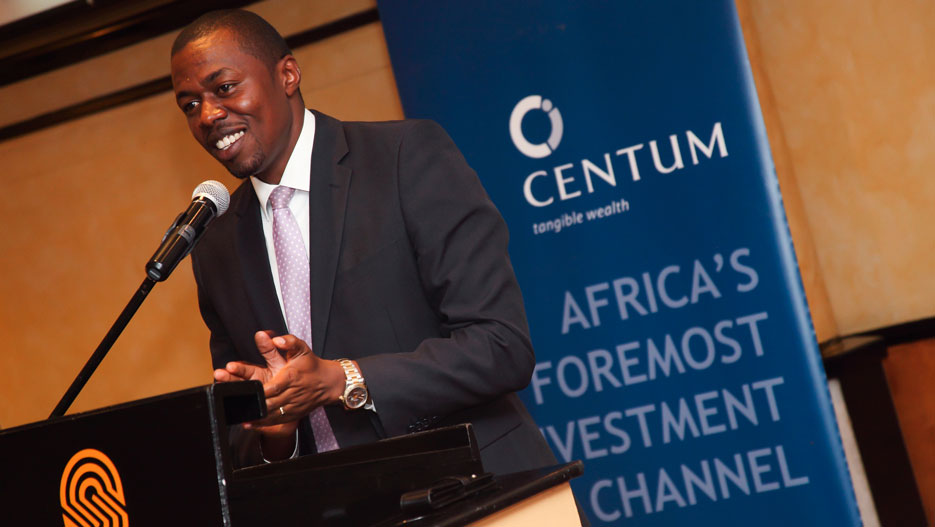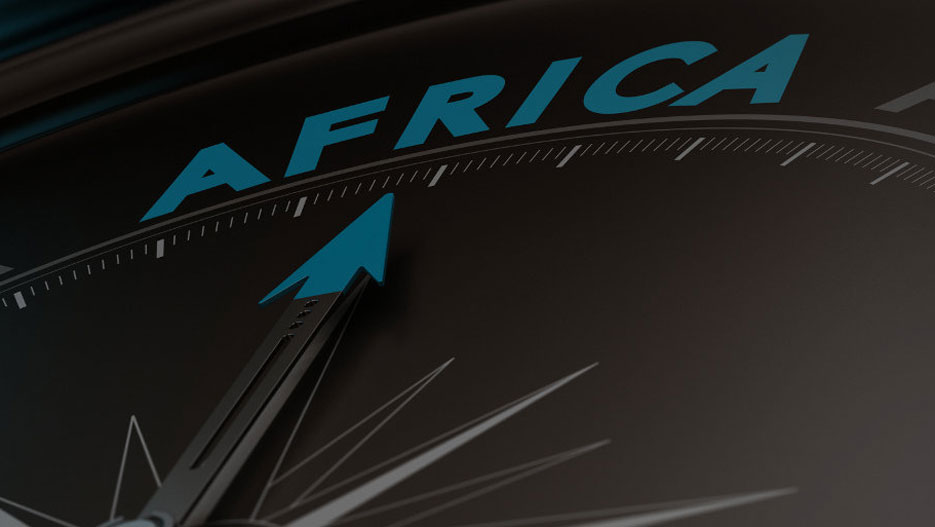Kenya Capital Markets: Overview of Asset Management Company Nabo Capital
Pius Muchiri gives his assessment of the capital markets sector and the asset management segment in Kenya. He also presents Nabo Capital, formerly Centum Asset Managers, a wholly owned subsidiary of the Nairobi Securities Exchange-listed Centum Investment Company Limited.
Interview with Pius Muchiri, Managing Director of Nabo Capital
Could you start by giving us your assessment of the capital markets sector and the asset management segment in Kenya?
I have been in the capital markets industry in Kenya for about 12 years now, and it has grown significantly over that period. I remember how there was very little foreign involvement over 10 years ago. Today, in contrast, we are talking about a 60-80% contribution from foreign investors, in terms of daily turnover. 5 years ago, our pensions industry contributed around KES 245 billion, in terms of market capital. Today, that has grown to about 900 billion. As you can see, we have grown significantly on the capital side. But on the asset side, we still have 50-60 stocks at any point in time listed on the equity market. As regards the debt market, government bonds are really commanding space, and we have about a 130 securities. In my view, we have fewer securities than we should have, as there is ever greater money seeking out this market. Money looks for interesting opportunities, and we are now seeing far more capital targeting the private equity market. There are many funds, be they from the US or Europe, all targeting opportunities in this market.
Our mission is to be able to identify lucrative opportunities and assets across Africa. This is something we have done very well over the last six years. We have generated returns of 21% on average in dollar terms, which is a track record that not many other funds have been able to match.
Over the last 10 years, a very different trend can also be observed. In terms of East Africa, we are the only economic bloc that is so diversified. We have been unfortunate in that we have not had a very strong mining sector, but this has been a blessing in disguise, as we grew our services sector and we have far more agriculture here. As a result, while seeing oil prices decline to unprecedented levels over the past year, we have seen far greater interest and capital being keener than ever to come to this particular region, in contrast to the past, when capital was targeting oil and commodity-rich countries, predominantly in Southern, Western and Northern Africa. The latter having suffered as a result of the Arab Spring, while West Africa’s growth has very much been driven by oil, copper, cocoa and those kinds of products.
Unlike in the past, we are now the preferred destination for capital, for the first time in a very long time, and I hope that it will stay that way.
The asset management industry has grown. I believe 5 years ago, we had about 17 asset managers, while today we have around 21 or 22 asset managers, with some international names also coming into this space. However, the top 5 asset managers have remained relatively unchanged. Clients, particularly pension clients, tend to be very ‘sticky’, so we see emerging asset managers introducing new products, which is certainly the category where I would place Nabo Capital. We are something of a disruptive force in the asset management arena, in that we are the first to bring in very serious foreign clients into this market. This continues to confirm that our business model is the right one, and it will change how asset management is done in this market, going forward.

Nabo Capital, formerly Centum Asset Managers, is a wholly owned subsidiary of the Nairobi Securities Exchange-listed Centum Investment Company Limited. Your core business revolves around the management of traditional asset classes such as equities, money markets and fixed-income portfolios. Could you tell us more about this aspect of your business?
I will begin by explaining to you how Nabo Capital is structured. We have two arms, i.e. business units, which are 1) Asset Management, and 2) Advisory. In terms of Asset Management, we deal with public markets, and within that, we deal with traditional asset classes, including equities and fixed-income for large institutional clients. We also have mutual funds, which are pool funds for ultra-high net worth individuals. We do not just invest in Kenya, but also abroad. The only place we do not touch is South Africa, but we are otherwise involved in the whole of Africa.
Why is that?
Because South Africa is very highly correlated with Europe and the developed world. It is growing slowly and our aim is to sell Africa to the rest of the world. I believe the world already knows South Africa quite well, but not the rest of Africa. Therefore, our mission is to be able to identify lucrative opportunities and assets across Africa, from Southern to Northern Africa. And this is something we have done very well over the last six years. We have generated returns of 21% on average in dollar terms, which is a track record that not many other funds have been able to match. This again proves that our on-the-ground asset management approach is good. We are not like an institution in London or New York flying in for 2-3 days, buying assets then flying back. We know the terrain, we have networks on the ground, we know how to source difficult but amazing stocks in the market. And that’s what we are able to offer our clients. So, we are strong in equities and fixed-income. But our core competence is really in equities.
Now, our advisory business is really interesting, because the team there is focused on alternative assets, such as private equity and real estate, where we identify good projects, and by extension good assets, in the African space. We then link these up with investors locally and globally, who are looking for these very rare-to-find assets. We did this for the Centum Group towards the end of last year, when we brought in Old Mutual from South Africa, who invested around $ 63 million in real estate assets, namely in the Two Rivers mall.
Nabo Capital is registered under the Retirement Benefits Authority to manage pension funds. Could you tell us about that?
When we started Nabo Capital in 2013, we had a Retirement Benefits Authority license. But we gave up on the license last year and returned it, because we look to other asset managers in the market as being a segment of our market – or clients – and we did not want to be in a position where we are in effect competing with our target clients. As a result, we do not actually manage pension funds, instead our core competence is bring otherwise inaccessible assets from across Africa to the fore and make them available. And asset managers who are pension fund managers are part of our target market.
Why choose Nabo Capital? What makes you different from the competition?
Nabo Capital was spun off from Centum in 2013. We used to run as one of their departments, and by forming Nabo Capital and obtaining a fund management license, we flung open the doors of managed third-party funds. Before that, for over 40 years, we had never managed any other funds other than our own, and we mainly had people coming to us and saying “we want to replicate the kind of performance that you are able to generate through your expertise.” We then decided on buying the Centum share, and getting the fund management license helped us to apply our expertise more than as part of Centum – now as our client. Therefore, one advantage that we have is that we do not take people where we do not go ourselves, so we invest our own money in those markets, and as such, we do not experiment with other people’s money. We have a long track-record, of almost 50 years, in managing our own money and doing so successfully.
I believe we are the only ones in this market with vast experience in dealing with over 700 securities across Africa. We have invested in over 10 markets, and we will continue adding more markets to our portfolios.
We are the only ones to be probably as well set up, in terms of investment products, philosophy, processes and procedures, by positioning ourselves to manage very sophisticated foreign investors or clients. This is something we see at work even with the kind of clients we currently have. In fact, the greater share of our portfolio is for foreign rather than local investors.

What is the share?
I would say it is around 60%. So here is proof that our processes and procedures, together with our investment philosophy, is sophisticated to the point where we can cater to such clients, as any other asset management firm would be able to in New York or in London.
Does Nabo Capital carry out any type of actions in terms of Corporate Social Responsibility?
Yes, we do CSR, but through a vehicle called the Centum Foundation. This brings together all our CSR activities as a group, where we help young people with amazing ideas but no capital to start-up companies with potential to grow into something really substantial or into investment-grade assets. This allows us to align our vision and mission even at the level of our CSR activities.
Concretely, do you help them with training, for instance?
Yes, we don’t just provide them with capital, but we also mentor them, as well as helping with the filtering process, in terms of who makes it through to receive assistance before the panel of entrepreneurs and want their start-ups to be supported by the foundation.
What are the main challenges to be faced by Nabo Capital on a daily basis, as well as the challenges of the sector in general? And what is being done to overcome these challenges?
There will always be challenges. I think our first challenge is that we are a very ambitious organisation. We set ourselves very steep targets, and it takes time for us to achieve them. There is a balancing act between achieving those targets and the timeframes we set ourselves, and this sometimes entails conflict. Just to give you an example, it may take over 8 months for us to recruit a foreign client and go through due diligence before we close a deal, even more at times. But you only have five years to execute your strategy, so with one client already being very intense, securing five clients in the space of 5 years is in itself a real achievement. However, I believe this is something that gets easier with time.
The other challenges we face have to do with the market. 2015 has been a very tough year for everyone globally, and we witnessed bearish trends worldwide, even locally. This tends to limit the investment universe, where you are able to generate a return that is satisfactory to your clients. I am glad that we have done very well relative to average benchmark, which we continue to outperform. I believe this is what makes our clients stick with us.

How do you see the capital markets sector evolving over the next 2-3 years and where would you like to see Nabo Capital? What would you like to have achieved by then?
I believe technology is going to be a disruptive factor, and personally I believe every business leader needs to focus on technology. It needs to go up high on the agenda of every CEO. The issue that I can pinpoint in terms of asset management locally is that management fees continue to shrink, and therefore managers need to think differently in terms of how to use the few resources that they have. This means that operations and other back office services are probably best outsourced, going forward, which is my personal opinion. With ideas such as Uber coming into play, I believe this is evidence of how technology can completely disrupt an industry and change how things are done.
Going forward, I believe local clients are getting somewhat exhausted, and therefore I see the best way of increasing assets under management will probably be to recruit foreign clients, who are also under-serviced, as most foreign institutions seeking exposure in Africa have been going through South Africa, and somehow they never really achieve the level of exposure there that they initially envisaged. Many are now saying “You know what? I’m not going to go through South Africa,” and turn to East Africa asking who is the best asset manager in East Africa, West Africa and North Africa respectively, and I believe this is how mandates are going to be distributed in future. Therefore, local asset managers must ‘step up’ their game and be able to meet the very high level of service that is expected of them going forward.
Thirdly, I believe that from a market point of view, there is probably going to be a good deal of pressure on the regulators to increase the number of assets that are available for investment, since capital is not going to cease coming into this market. If regulators are unable to help, we may see other products emerging outside the regulated environment, in seeking to meet this particular need.
Those are some of my somewhat contrarian views as to the future, but very positive on the whole. I am very positive that this is the best time to invest in Africa, and East Africa in particular, and I would be very offended if anyone took me out of this market. I believe I am in the best place at the right time.

What would be your message to the international business community and investors considering the region and more specifically Kenya as an investment destination?
I travel abroad quite a bit, and I ask myself one question: in which market or continent would I make the most difference? And I still end up coming back to Africa. I’m very convinced that the gaps are glaring here, and the best place to position your capital is here.
What I would tell my colleagues in the investment industry globally is that the risks have probably been overplayed and there is a lot more opportunity and less risk than is perceived, when you are speaking from an office or a conference in London or New York. I would urge you to come to the ground, see for yourself, place your capital, and you will have no regrets.
One simple driver of value will be demographics. When you look at our population today, it is likely to double over the next few years, whereas when you look at Europe, that’s not going to be the case. I keep joking that when I’m on the streets of Europe, I don’t see many pregnant women, but when I’m here, I see so many of them – so you know that consumption and demand are just going to grow more and more, and we need a quality service here, and quality capital, i.e. people with longer investment horizons. The few investors that I have been able to bring to Africa have been totally sold out in understanding that this is the best place to put their capital, and they are here for the long term. I encourage very many more to come to this market.